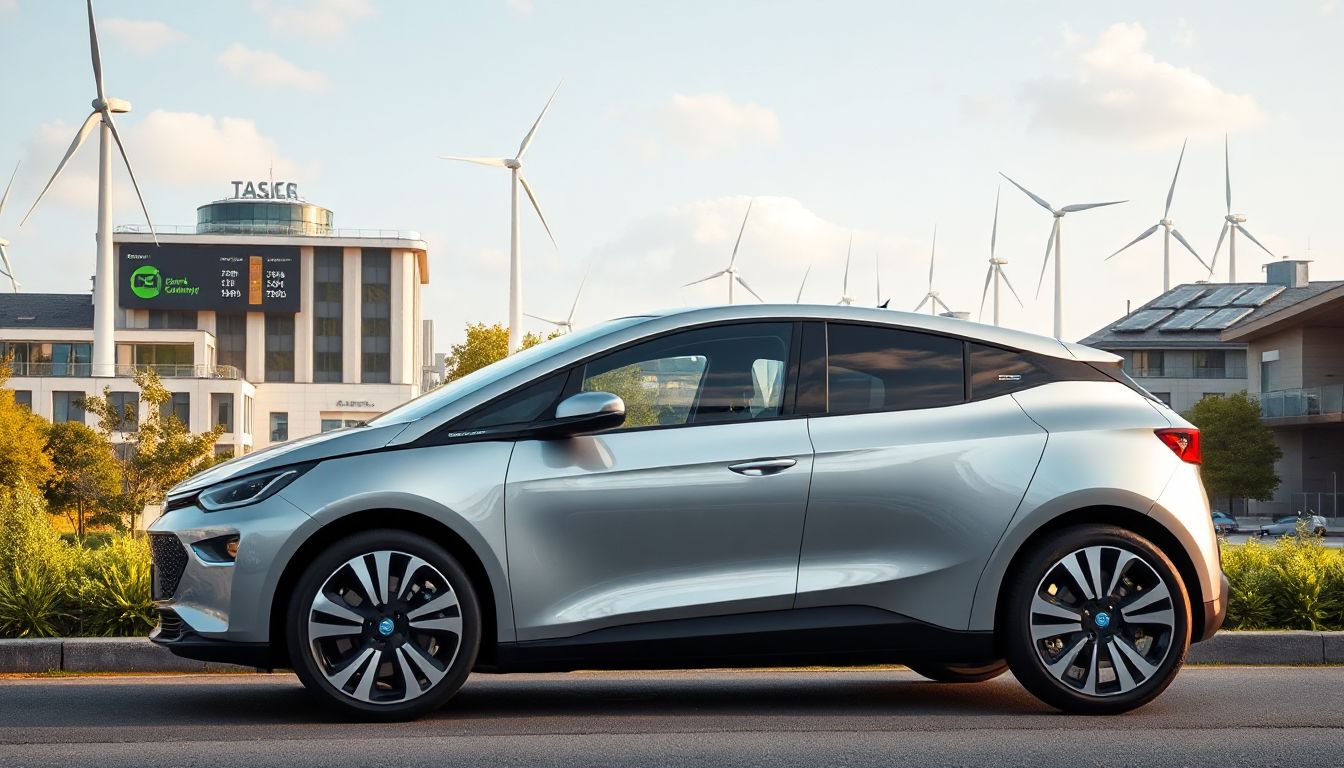Introduction
Germany is making big moves toward clean mobility with a focus on electric vehicles (EVs). The country aims to cut down emissions and meet climate targets set by the European Union. For consumers, companies, and investors, understanding how EV taxes work is key to saving money and planning smarter. The good news? Germany offers a range of incentives like tax breaks, subsidies, and exemptions that make electric driving more affordable. This guide walks you through all the rules, benefits, and future changes in Germany’s EV tax system so you can drive with confidence.
Germany’s Electric Vehicle Tax Policy Overview
The Evolution of EV Taxation in Germany
Germany’s approach to taxing EVs has shifted a lot over the years. In the beginning, there were few incentives, and ownership costs could seem high. But as policy makers saw the need to push green mobility, new laws boosted EV adoption. Major laws like the “Environmental Bonus” (Umweltbonus) and tax exemptions have changed the game. Experts from German transport agencies say these policies are designed to make electric cars more attractive and affordable.
Objectives of the EV Tax System
Germany wants more people and companies to choose electric cars. The plan is to cut pollution and meet the EU’s climate goals. Making EVs cheaper through tax incentives encourages adoption and helps reduce burning fossil fuels. At the same time, the government aims to balance collecting revenue from vehicle taxes with offering enough benefits to promote clean mobility.
Types of Tax Incentives Available
Germany offers several tax benefits for EV owners, including:
- Tax reductions and exemptions: New electric vehicles often pay lower or zero vehicle tax.
- Subsidies: Financial grants like the Umweltbonus help lower upfront costs.
- Ongoing tax benefits: For example, reduced taxes for company-owned EVs.
The rules do differ for pure EVs and hybrids, with some incentives tailored for each. Eligibility is usually based on factors like vehicle type, emissions, and date of purchase.
Tax Advantages for Electric Vehicle Owners in Germany
Government Grants and Subsidies
One of the biggest incentives is the “Environmental Bonus” or Umweltbonus. This subsidy helps cut down the initial expense of buying an EV. In 2023, eligible buyers could receive up to €6,000 for fully electric cars, with the government covering half and automakers chipping in the rest. To qualify, your car must meet certain emissions standards and be registered in Germany. Applying is straightforward through official channels, and the bonus can significantly reduce the total price of a new EV.
Reduced or Exempted Vehicle Tax
New EVs in Germany are often exempt from vehicle tax for up to ten years after registration. This exemption applies if the vehicle meets specific emission standards. Once the period ends, the tax is usually minimal compared to traditional gasoline or diesel cars. Keeping track of how long your exemption lasts is vital, especially if you’re considering long-term ownership. Future policies might extend or modify these benefits, so staying updated is wise.
Lower Company Car Tax Rates
Businesses offering EVs to employees or using EVs in their fleet get big tax breaks too. The benefit? Lower taxable amounts, which means less money paid in taxes. For example, replacing a combustion engine with an EV in a corporate fleet can cut costs significantly. Many companies have started adopting EVs because of these savings, making fleet management more cost-effective and eco-friendly.
Incentives for Plug-in Hybrid Vehicles
Plug-in hybrids (PHEVs) also enjoy some benefits but fewer than full EVs. They might get partial tax exemptions or reduced registration fees, depending on their electric range and emissions. Recent updates are tightening rules around hybrids, so it’s essential to check if a PHEV still qualifies for advantages before buying.
Regulatory Framework and Tax Calculation Methods
How the Vehicle Tax is Calculated
German vehicle tax mainly depends on emissions. Since EVs produce zero tailpipe emissions, they often face little or no tax. For hybrids and combustion cars, formulas consider factors like CO2 output and engine size. The less you emit, the lower your tax bills. For EVs, the calculation can be as simple as applying a fixed exemption rate, saving owners money annually.
Taxation Categories Based on Vehicle Type
- Pure EVs: Usually tax-exempt for up to ten years post-registration.
- Plug-in Hybrids: Partial tax benefits, often based on EV range and emissions.
- Gasoline/Diesel Cars: Heavily taxed due to higher emissions, with rates depending on CO2 levels.
For example, a full EV registered in 2023 may pay zero in vehicle tax, while a combustion engine could face several hundred euros annually.
Impact of Vehicle Range and Battery Capacity
Long-range EVs often have larger batteries, which can influence incentives. Policies consider battery size because bigger batteries enable longer driving distances, making EVs more practical. Popular models like Tesla’s Model 3 or Volkswagen ID.4 feature batteries around 50 to 80 kWh—these capacities often align with higher tax benefits. The government may also adjust policies to favor longer-range vehicles, boosting their adoption.
Challenges and Future Developments in Germany’s EV Tax System
Recent and Upcoming Policy Changes
Germany constantly updates its EV incentives. After October 2023, officials announced possible reforms, like extending tax exemptions or increasing subsidies for specific EV categories. Industry leaders watch these moves closely, hoping for policies that boost market growth even further.
Limitations and Criticisms of Current Policies
Some critics argue that current incentives benefit mainly wealthier consumers, leaving lower-income individuals behind. Others say that the availability of subsidies varies regionally, creating disparities. Environmental groups sometimes question if subsidies are enough to truly accelerate the shift toward green transportation. Industry insiders suggest that more inclusive and long-term policies could help broaden EV adoption.
Opportunities for Consumers and Businesses
If you want to maximize tax benefits, plan your purchase around policy changes and deadline dates. For businesses, expanding your fleet with EVs can lead to big savings and corporate branding benefits. Keep an eye on government announcements, and consult with tax advisors for tailored advice. Small steps taken now can lead to significant savings later.
Conclusion
Germany’s EV tax system offers a compelling mix of incentives designed to make electric driving more affordable and attractive. From grants to tax exemptions, these benefits give you a real edge while reducing your carbon footprint. Staying informed about policy updates ensures you don’t miss out on savings or new opportunities. Whether you’re a buyer, business owner, or investor, understanding these rules can help you make smarter choices. For personalized tips, always check official resources or talk with a tax expert. The road to greener mobility in Germany has never looked brighter.




